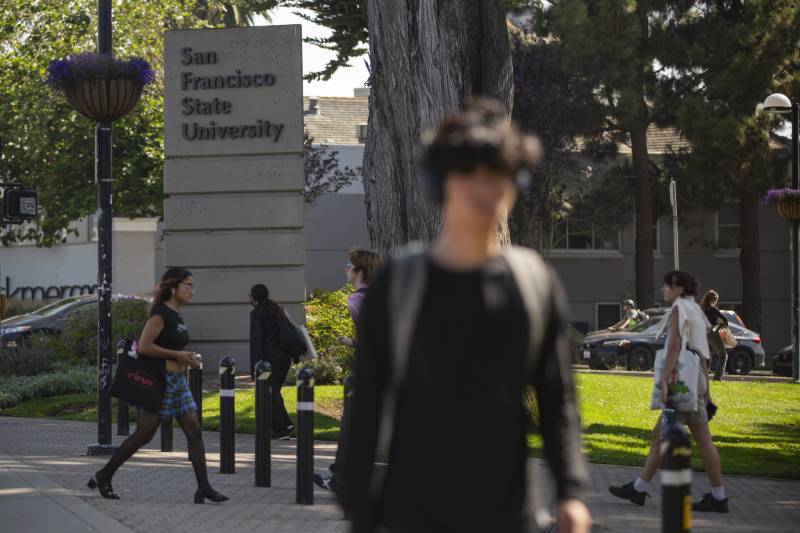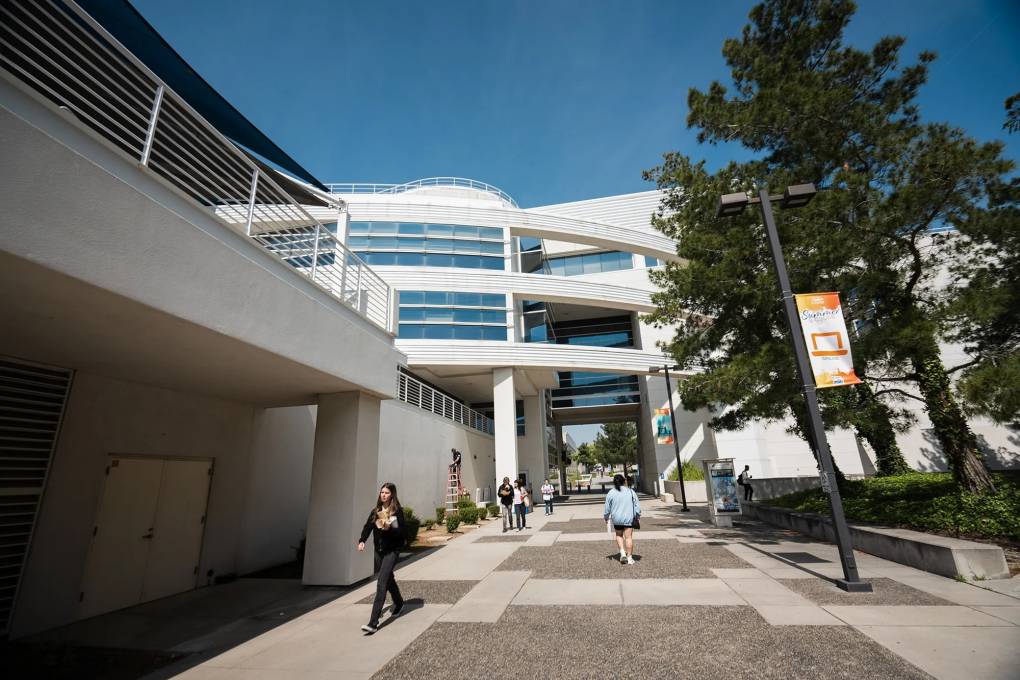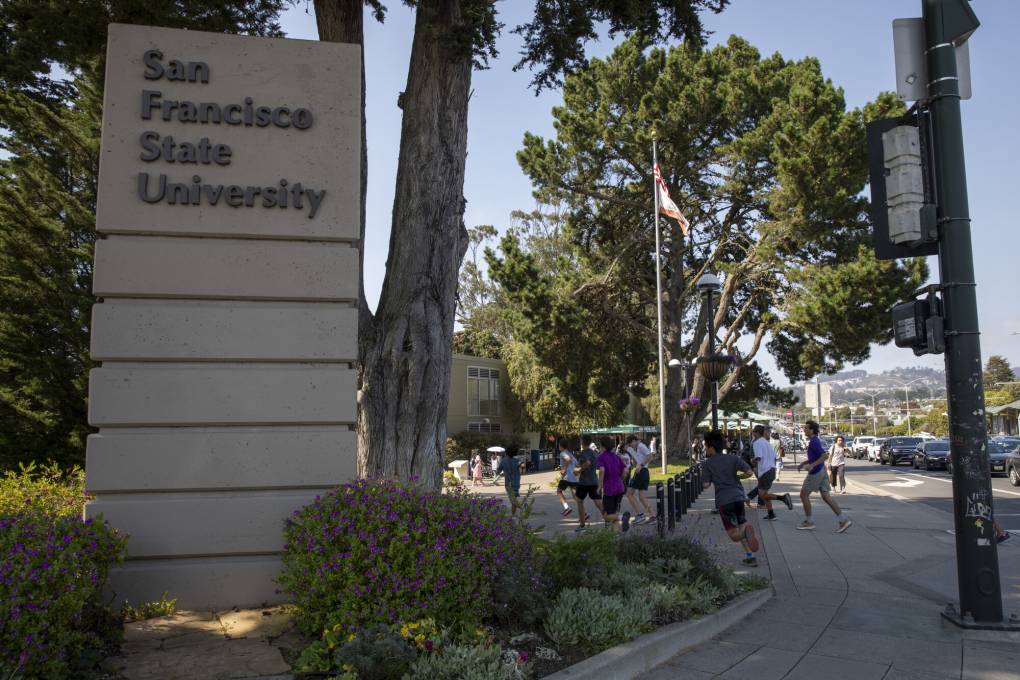The union is seeking a 12% salary raise and an increase in parental leave from six weeks to a full semester. They also want more manageable workloads for faculty, better access to breastfeeding stations and more gender-inclusive restrooms.
“What we’re doing is in the spirit of maintaining the integrity of what the public education system should be for,” said Maria Gisela Sanchez, a counselor at Cal Poly Pomona, who picketed Monday. “Public education belongs to all of us.”
Anne Luna, president of the union’s Sacramento chapter, said CSU faculty need this boost to cover the rapidly rising cost of rent, groceries, child care and other necessities.
“They can afford to provide fair compensation and safe working conditions,” Luna said in a statement. “It’s time to stop funneling tuition and taxpayer money into a top-heavy administration.”
The CSU chancellor’s office says the pay increase the union is demanding would cost the system $380 million in new recurring spending — more than twice the amount the system will receive from the state in increased funding for the next school year.
Leora Freedman, the vice chancellor for human resources, said in a statement that while the university system can’t meet the union’s demands, it still aims to pay its workers fairly and provide competitive benefits.
“We recognize the need to increase compensation and are committed to doing so, but our financial commitments must be fiscally sustainable,” Freedman said.
She said the chancellor’s office respects workers’ right to strike and is preparing to minimize disruptions on campuses.
Cal Poly Pomona leadership said the campus would remain open on Monday and that some faculty would still hold classes. Instructors participating in the strike notified students about cancellations and gave them instructions to prepare for the next class.
Kate Ozment, an English assistant professor and assembly delegate for the union’s Cal Poly Pomona chapter, said the only reason she could afford to take her job at the university after earning $18,000 annually as a graduate student in Texas was because she is married.
“That’s what we’re seeing is that people who are two-income households or have generational wealth are the ones who can afford to take these jobs,” she said. “That’s not actually what the CSU is supposed to be about.”
The walkout comes as other non-faculty workers at CSU are also fighting for better pay and bargaining rights. In October, student workers across the university system’s 23 campuses became eligible to vote to form a union.



